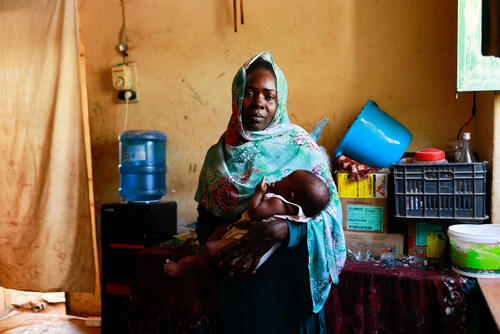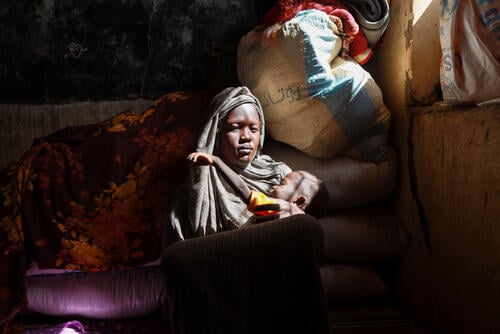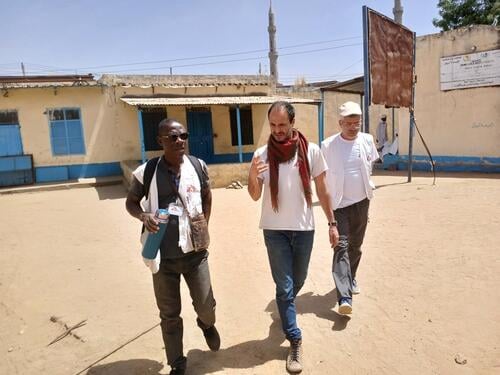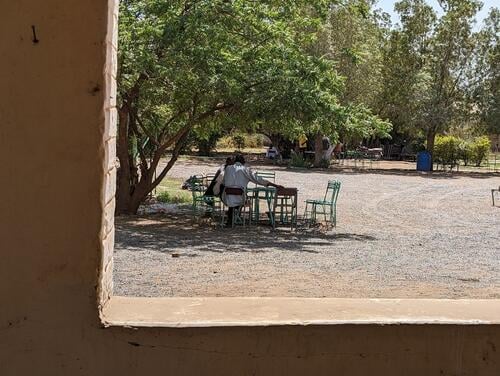- Amid ongoing conflict in Sudan, people’s access to healthcare is increasingly limited
- A combination of closed facilities, lack of medicines, and few authorisations allowing travel are among the issues
- MSF urges the Sudanese authorities to ensure restrictions – including limiting travel permits for staff – are not reinstated.
Paris – Over the past few months, people in Khartoum State, Sudan, have become increasingly cut-off from healthcare, in a context of ongoing fighting in the country. Very few medical facilities remain functional, depriving three million people of lifesaving medical services.
For the first time in more than 90 days, a limited number of travel permits have been granted for humanitarian staff to access areas controlled by the paramilitary Rapid Support Forces (RSF). Before this, no travel permits had been granted for travel to Khartoum since 1 October. Médecins Sans Frontières (MSF) is calling for the Sudanese authorities to ensure these restrictions are not reinstated, in order to avert further loss of life.
“Despite the past exodus from Khartoum due to ongoing fighting, there are still a huge number of people who either could not afford to flee, or were unable to do so due to vulnerabilities or insecurity, and who are now struggling to access critical treatment,” says Jean-Guy Vataux, MSF Head of Mission in Sudan.
As one of the few functioning hospitals available to the community of Khartoum State, [Bashair Teaching hospital] is a lifeline for many, but we're starting to miss the essentials.Slaymen Ammar, MSF’s Medical Coordinator
In Khartoum, only a handful of hospitals are currently operational, and the price of essential medicines continues to soar. MSF teams in the Turkish hospital receive over 100 patients a day, mostly children and pregnant women. Many arrive in a critical state at advanced stages of illness, having taken the calculated risk of travelling to the hospital. They sometimes have to travel for miles on foot and across frontlines, since there is no ambulance service and there are very few transport options available.
“A four-year-old girl was brought to our emergency room after being hit in the abdomen by a stray bullet that entered her home,” says Vataux. “Her mother took her to three other hospitals before she was finally able to get surgical treatment at the Turkish Hospital.”
At Umdawanban hospital, there is no supply of oxytocin, an essential drug for many women during labour. One of the staff describes traumatic scenes within the paediatric unit, as children with chronic diseases such as diabetes cannot find insulin and are often hours away from death when they finally reach the hospital.
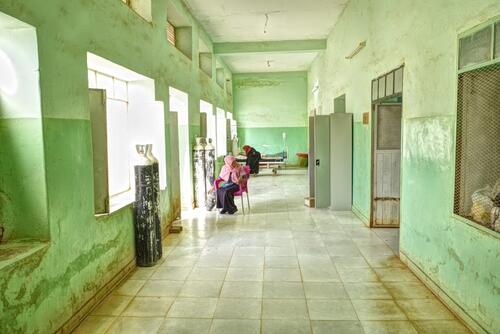
“Before MSF set up our services here, children in Umdawanban had no access to paediatric care and therefore no chance of survival,” says the staff member. “We see fewer child deaths today but now our medical team are reduced to the bare minimum within the hospital.”
“Mothers and children remain at risk, especially when they suffer from chronic conditions such as hypertension, thyroid problems or epilepsy,” continues the staff member. “These conditions require medicines that are hard to find for both MSF and Ministry of Health colleagues.”
The situation at Bashair Teaching hospital, in southern Khartoum, is similar to other hospitals int he city.
“The team here have managed over 6,100 consultations in the emergency department in the last six months,” says Slaymen Ammar, MSF’s Medical Coordinator. “As one of the few functioning hospitals available to the community of Khartoum State it is a lifeline for many, but we're starting to miss the essentials. For example, stocks of medical gloves and antiseptic for cleaning wounds are so low that providing even very basic medical care is becoming a challenge.”
Mothers and children remain at risk, especially when they suffer from chronic conditions such as hypertension, thyroid problems or epilepsy.MSF staff member
“I recall a one-year-old child who was injured and lost his father from a bomb blast. He was in a critical condition but surprised us all when he recovered after two months of care in the trauma ward,” says Ammar. “When the boy was discharged, his mother – now a widow – had nowhere to go and spent three days trying to find transportation out of Khartoum to join her relatives in Darfur.”
Several MSF teams face severe challenges to keep services open, in large part due to administrative restrictions on staff travel permits.
“As our teams continue to deal with horrific influxes of casualties, restrictions on the movement of essential medical and other humanitarian staff into Khartoum for many months prevented people from being able to receive lifesaving treatment for wounds, and treatment for entirely preventable diseases,” says Vataux.
“The demand on health services in Khartoum has only increased since the violence that engulfed Jazirah State in mid-December. It led to many health facilities in Wad Madani, the state capital, becoming non-functional, and also to many people returning to Khartoum.”
“Although MSF has just been granted permission to return to Wad Madani, which is positive news, this was the first time for over 90 days,” says Vataux. “We urge the Sudanese authorities to facilitate our access to Jazirah and Khartoum states on a regular basis, so that we can meet the ever-increasing needs of people.”




